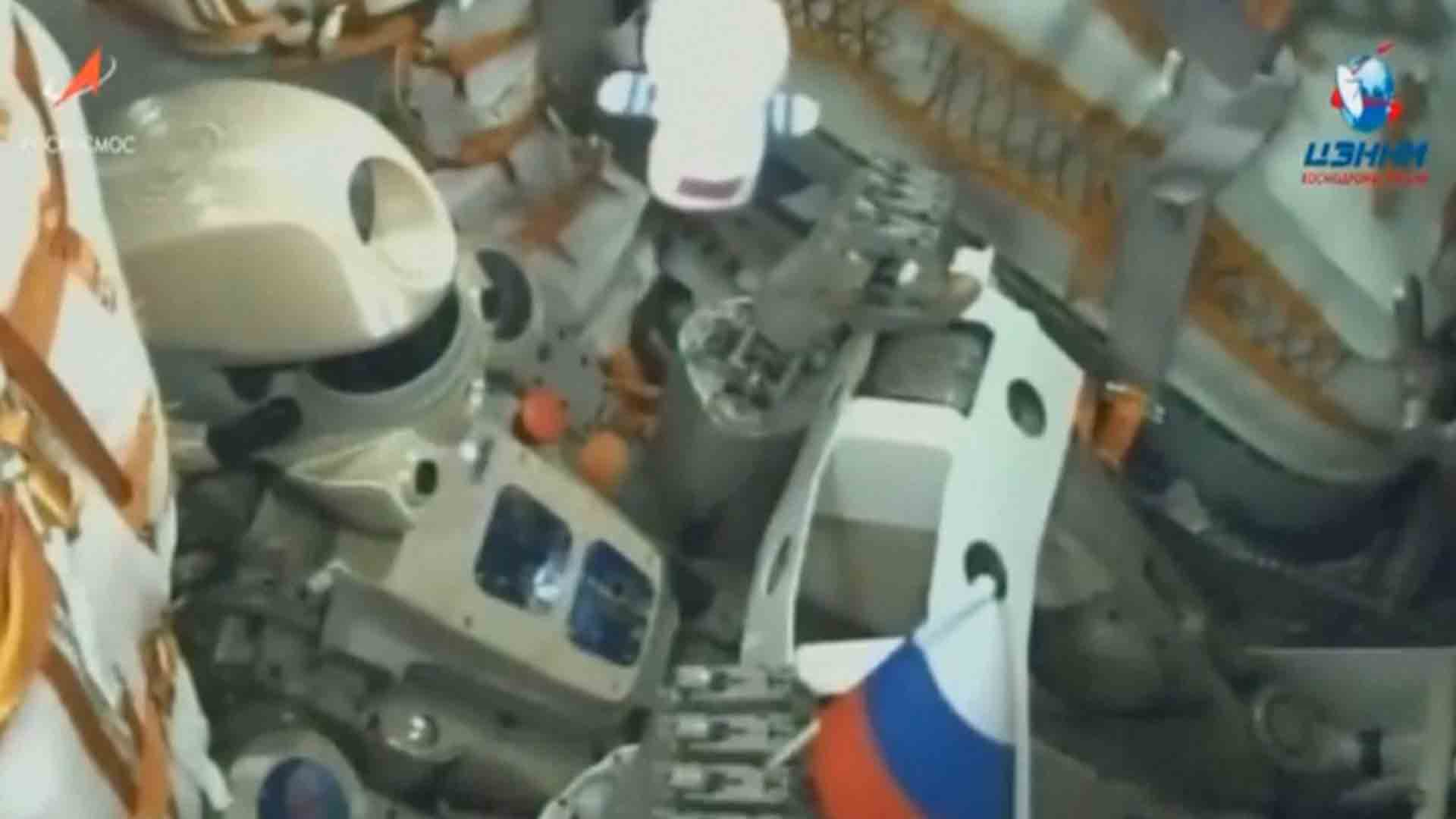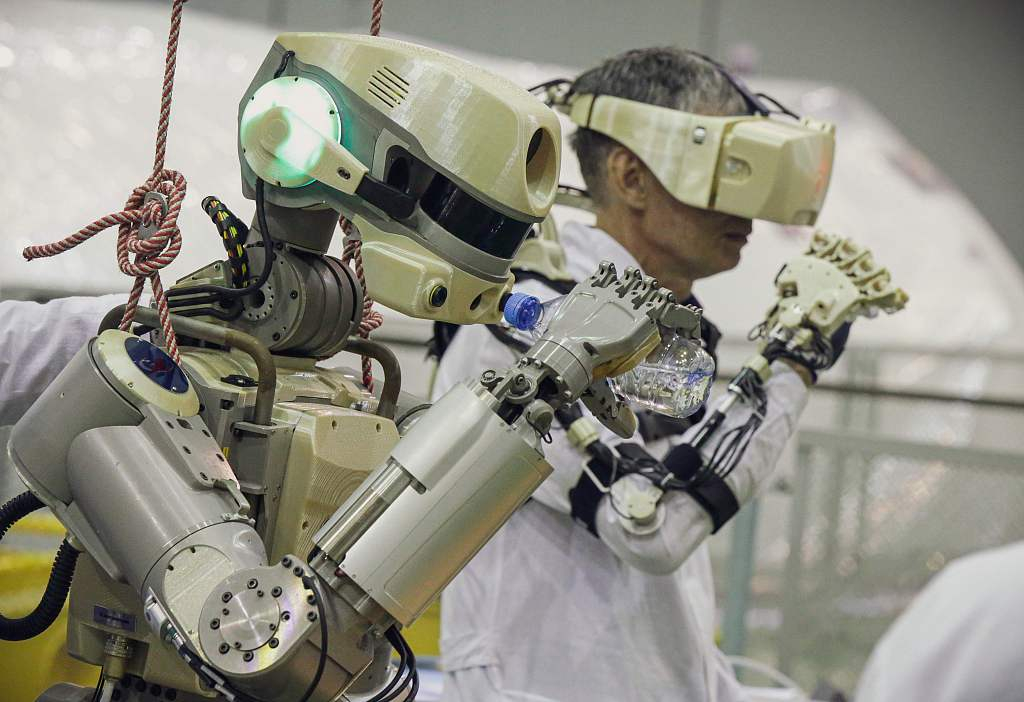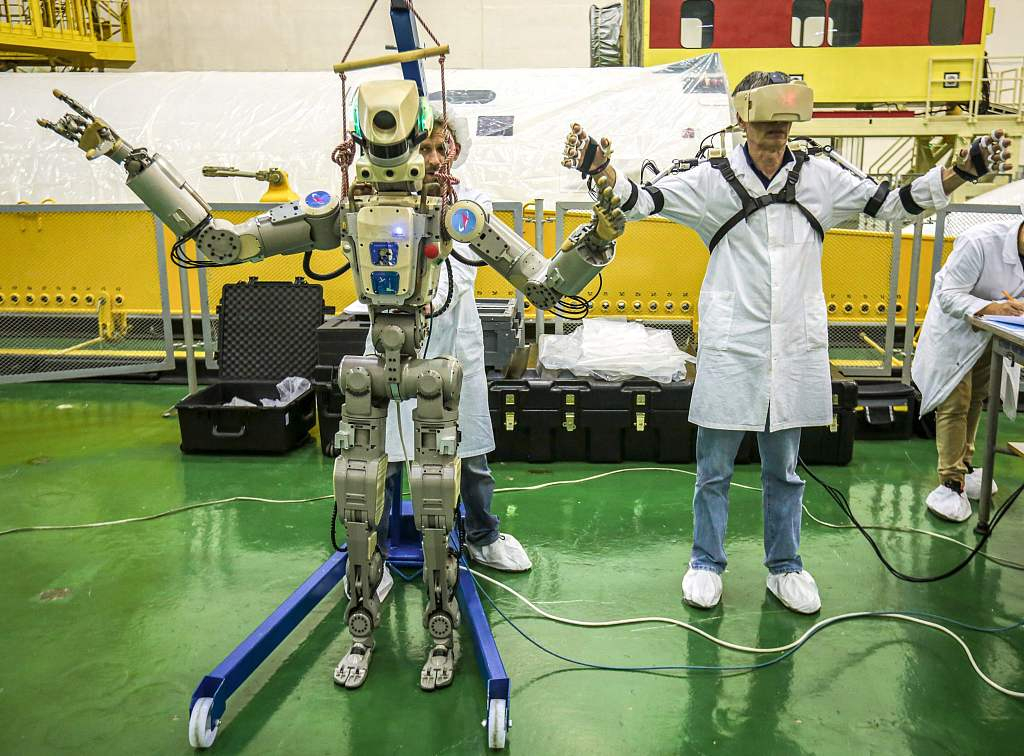

Russia on Thursday launched an unmanned rocket carrying a life-size humanoid robot that will spend 10 days learning to assist astronauts on the International Space Station (ISS).
Named Fedor, short for Final Experimental Demonstration Object Research, the robot is the first ever sent up by Russia.
Fedor blasted off in a Soyuz MS-14 spacecraft at 6:38 am Moscow time (0338 GMT) from Russia's Baikonur cosmodrome in Kazakhstan. The Soyuz is set to dock with the space station on Saturday and stay till September 7.
Soyuz ships are normally manned on such trips, but on Thursday no humans are travelling in order to test a new emergency rescue system.
Instead of cosmonauts, Fedor, also known as Skybot F850, was strapped into a specially adapted pilot's seat, with a small Russian flag in hand.
"Let's go. Let's go," the robot was heard saying during launch, repeating the famous phrase used by first man in space Yuri Gagarin.

Robot Fedor and a Russian scientist /VCG Photo
The silvery anthropomorphic robot stands 1.80 meters tall and weighs 160 kilograms.
Fedor has Instagram and Twitter accounts with posts saying it is learning new skills such as opening a bottle of water. In the station, it will trial those manual skills in very low gravity.
"That's connecting and disconnecting electric cables (and) using standard items, from a screwdriver and a spanner to a fire extinguisher," the Russian space agency's director for prospective programs and science, Alexander Bloshenko, said in televised comments ahead of the launch.
"The first stage of in-flight experiments went according to the flight plan," the robot tweeted after reaching orbit.
Fedor copies human movements, a key skill that allows it to remotely help astronauts or even people on Earth to carry out tasks while the humans are strapped into an exoskeleton.
Such robots will eventually carry out dangerous operations such as spacewalks, Bloshenko told the state news agency RIA Novosti.

Fedor stands next to Russian scientists. /VCG Photo
On the website of one of the state backers of the project, the Foundation of Advanced Research Projects, Fedor is described as potentially useful on Earth for working in high radiation environments, demining and tricky rescue missions.
Though initially developed for the emergencies ministry, Fedor can also be seen shooting at targets from two handguns in a video posted by Russian space agency chief Dmitry Rogozin.
On board, the robot will perform tasks supervised by Russian cosmonaut Alexander Skvortsov, who joined the ISS in July and will wear an exoskeleton and augmented reality glasses in a series of experiments later this month.
Since Fedor is not trained to grab space station handles to move about in microgravity conditions, its legs will be immobilized on the space station, Bloshenko said.

Copyright © 2018 CGTN. Beijing ICP prepared NO.16065310-3
Copyright © 2018 CGTN. Beijing ICP prepared NO.16065310-3